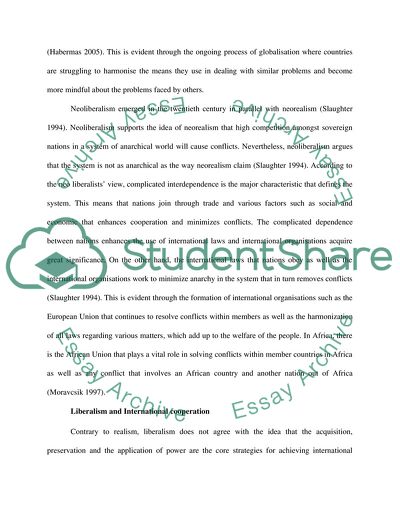Cite this document
(Does Liberalism Have a Future in International Relations Theory Coursework Example | Topics and Well Written Essays - 2250 words, n.d.)
Does Liberalism Have a Future in International Relations Theory Coursework Example | Topics and Well Written Essays - 2250 words. https://studentshare.org/politics/1850168-does-liberalism-have-a-future-in-international-relations-theory
Does Liberalism Have a Future in International Relations Theory Coursework Example | Topics and Well Written Essays - 2250 words. https://studentshare.org/politics/1850168-does-liberalism-have-a-future-in-international-relations-theory
(Does Liberalism Have a Future in International Relations Theory Coursework Example | Topics and Well Written Essays - 2250 Words)
Does Liberalism Have a Future in International Relations Theory Coursework Example | Topics and Well Written Essays - 2250 Words. https://studentshare.org/politics/1850168-does-liberalism-have-a-future-in-international-relations-theory.
Does Liberalism Have a Future in International Relations Theory Coursework Example | Topics and Well Written Essays - 2250 Words. https://studentshare.org/politics/1850168-does-liberalism-have-a-future-in-international-relations-theory.
“Does Liberalism Have a Future in International Relations Theory Coursework Example | Topics and Well Written Essays - 2250 Words”. https://studentshare.org/politics/1850168-does-liberalism-have-a-future-in-international-relations-theory.


